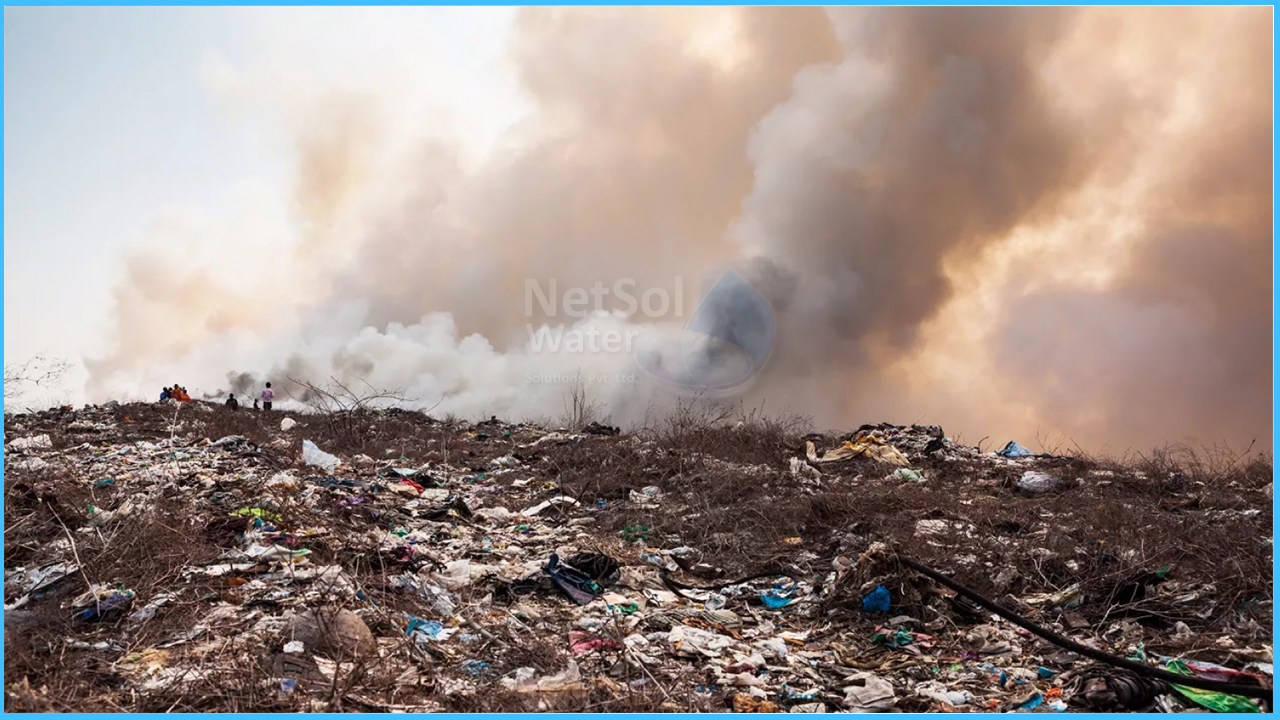Waste is not only a concern for the environment, but it is also a financial loss. More of it is being recycled or composted, and less is going to the landfill. How can we modify the way we produce and consume so that we produce less trash and use all garbage as a resource?
 Waste disposal has significant environmental consequences and can result in catastrophic difficulties. The majority of rubbish is buried in landfills, which are holes in the ground, sometimes former quarries, and sometimes specially excavated pits. Some garbage may decay eventually, but not all, and it may smell or produce explosive methane gas, which contributes to the greenhouse effect. As garbage decomposes, leachate can pollute the environment. Landfills that aren't well-managed might attract pests and litter.Food and garden waste, building and demolition debris, mining and industrial garbage, sludge, old televisions, old automobiles, batteries, plastic bags, paper, sanitary waste, old clothes and old furniture, etc. Plastics contain harmful compounds such as dioxins when they are burned, which makes incinerating garbage a challenge. Incinerator gases can pollute the air and contribute to acid rain, while incinerator ash can contain heavy metals and other poisons. There are active campaigns against rubbish incineration as a result of these issues.
Waste disposal has significant environmental consequences and can result in catastrophic difficulties. The majority of rubbish is buried in landfills, which are holes in the ground, sometimes former quarries, and sometimes specially excavated pits. Some garbage may decay eventually, but not all, and it may smell or produce explosive methane gas, which contributes to the greenhouse effect. As garbage decomposes, leachate can pollute the environment. Landfills that aren't well-managed might attract pests and litter.Food and garden waste, building and demolition debris, mining and industrial garbage, sludge, old televisions, old automobiles, batteries, plastic bags, paper, sanitary waste, old clothes and old furniture, etc. Plastics contain harmful compounds such as dioxins when they are burned, which makes incinerating garbage a challenge. Incinerator gases can pollute the air and contribute to acid rain, while incinerator ash can contain heavy metals and other poisons. There are active campaigns against rubbish incineration as a result of these issues.
IMPACTS OF WASTE ON OUR ENVIRONMENT AND LIFE-
1. Air pollution, climate change, poisoning of land and water
Poor waste management contributes to climate change and air pollution, as well as having a direct impact on a wide range of ecosystems and species.Landfills, which are seen as the last option in the waste hierarchy, emit methane, a potent greenhouse gas connected to climate change. Microorganisms in landfills produce methane from biodegradable waste such as food, paper, and garden waste. Landfills may contaminate soil and water depending on how they are constructed.Waste is collected, transported, and treated after it has been collected. Carbon dioxide, the most common greenhouse gas, and air pollutants, such as particulate matter, are released into the atmosphere throughout the transportation process.Some of the garbage could be recycled or burnt. Waste energy can be used to generate heat or electricity, which can then be used to replace energy provided by coal or other fossil fuels. As a result, waste energy recovery can aid in the reduction of greenhouse gas emissions.Recycling can help reduce greenhouse gas emissions and other emissions even further. When recycled materials are used instead of new materials, fewer new materials are needed in the first place.
2. Waste has an impact on ecosystems as well as our health
Poor waste management or littering can have a significant impact on some ecosystems, such as marine and coastal ones. Marine litter is becoming increasingly problematic, and not just for aesthetic reasons: entanglement and ingestion pose serious dangers to many marine animals.Waste has an indirect impact on the environment. Whatever is not recycled or recovered from waste reflects a waste of raw materials and other inputs employed in the product's supply chain, which includes the manufacturing, transportation, and consumption phases.
The environmental consequences of the entire life-cycle chain are far greater than those of the waste management phases alone. Methane gas contributes to climate change, air pollutants are released into the atmosphere, freshwater sources are contaminated, crops are grown in contaminated soil, and fish ingest toxic chemicals, eventually ending up on our dinner plates.Unlawful actions such as illegal dumping, burning, and exports also play a role, although it's difficult to know the full scope of these activities or their consequences.
3. Costs of management and economic loss
Our society also suffers from a financial loss and burden as a result of waste. When the 'leftovers' are abandoned, the labor and other inputs (land, energy, etc.) employed in its extraction, production, distribution, and consumption phases are also lost.Furthermore, trash management is costly. It costs money to build a collection, sorting, and recycling infrastructure, but once it's in place, recycling may provide cash and jobs.



